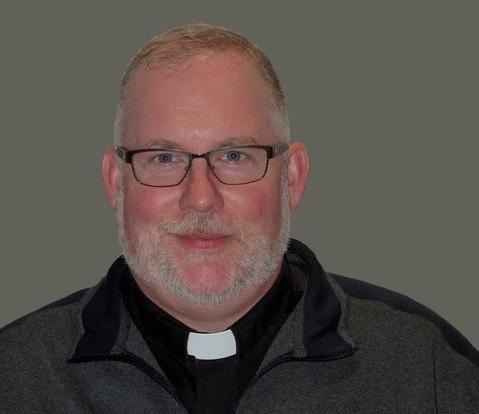Arctic priest and Wycliffe College graduate, the Rev. David Lehmann (W94) has been elected bishop of the diocese of Caledonia. Communications director Patricia Paddey spoke to him recently about his faith, his October 25 election, and his hopes for the future.
Q: Tell us about your earliest awareness of God in your life.
DL: I wasn’t raised as a cradle Anglican. I had limited exposure to church life. But every time I would go into a church I would be impressed with a sense of awe. I came to faith in my teenage years; a new clergy person came to town and it was through the power of his preaching that I was convicted, and realized that I needed to accept Jesus as my Lord and Saviour. So you can never underestimate the power of preaching. We need to always take it seriously.
Then in grade 12, I had a vision in which God spoke to me and called me to ordained ministry. So I went from high school to college to seminary. When I arrived at Wycliffe, I was just 20 years old.
Q: How has your Wycliffe education prepared you for the work God has entrusted to you since your graduation?
DL: Being biblically-focused and centred on Scripture is hugely important for the work that I’ve done. But I also learned about community development and the importance of community dynamics. I grew up in a tight-knit community, but when you go to someplace like Toronto, you realize that community is something that takes effort and intentionality, especially when you’re trying to evangelize. So those are all important things that I’ve taken from Wycliffe College.
Q: For those of us who are non-Anglicans, describe a bishop’s duties.
DL: The role of a bishop is to be the chief pastor of a diocese. You have the care of the souls of the whole diocese. First and foremost, the care of the clergy and the senior lay leadership, to hold a common vision and to build a sense of common purpose, and to empower the people to do the work that God has called them to.
Q: What does it mean to be a bishop of the church in an era when church attendance is declining, churches are closing, and attitudes of the broader culture can range from disinterest to outright hostility?
DL: I think it’s an exciting time because we’re not slaves to the common culture. We’re in an era when we’re rediscovering our voice as the church and as we sit in opposition to some aspects of the culture in which we find ourselves. That can be a very exciting place to be.
Q: Your election went to 20 ballots. What did that mean to you?
DL: I’ve been in the diocese of the Arctic for a while, and 20 ballots is nothing. But it was a very long day and I was impressed with the prayerfulness and perseverance of the people of Caledonia and their desire to discern God’s will for them. There was a lot of singing of hymns and reflection on where God was leading. They were faithful in working to come to a conclusion.
Q: Let’s address the controversy that occurred prior to your election, regarding the blocked consecration of Rev. Jake Worley. What impact has the knowledge of that had on you?
DL: I’m just very cognizant of the fact that the diocese really struggled with the failed election and having to do the process again. There are some deep wounds, and we need to work with the province to change canon laws so that that can’t happen again.
Q: Any final thoughts?
DL: Just that I’m looking forward to renewing contacts with Wycliffe College, to coming down [to Toronto] to talk to students, and to do a recruiting drive [for Wycliffe] with the diocese of Caledonia!





